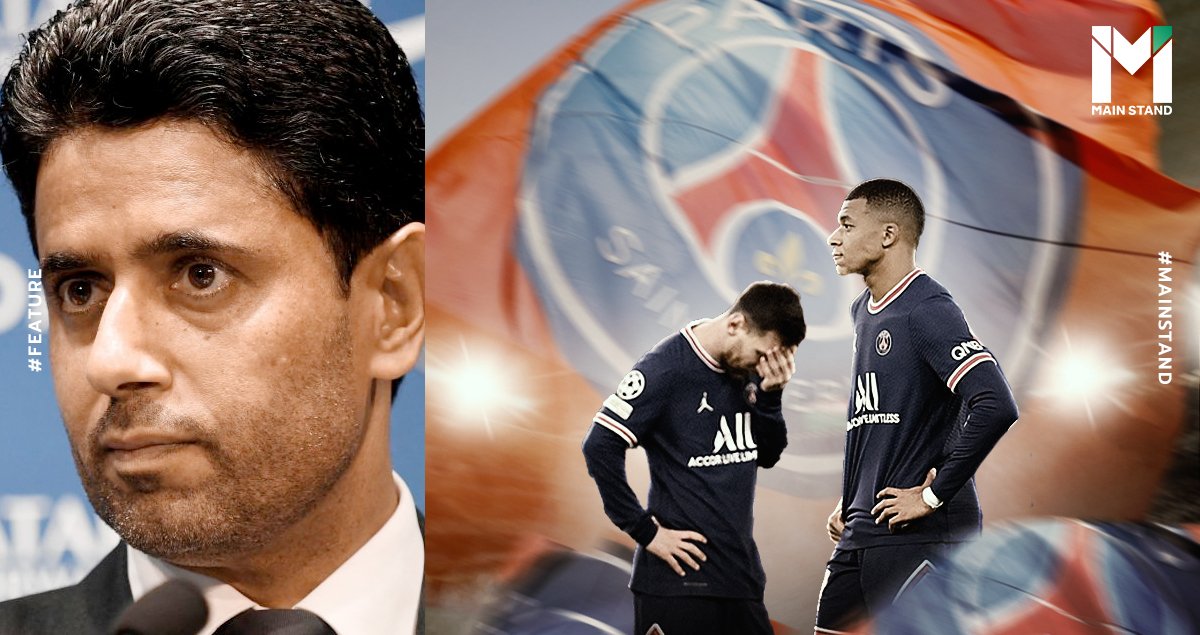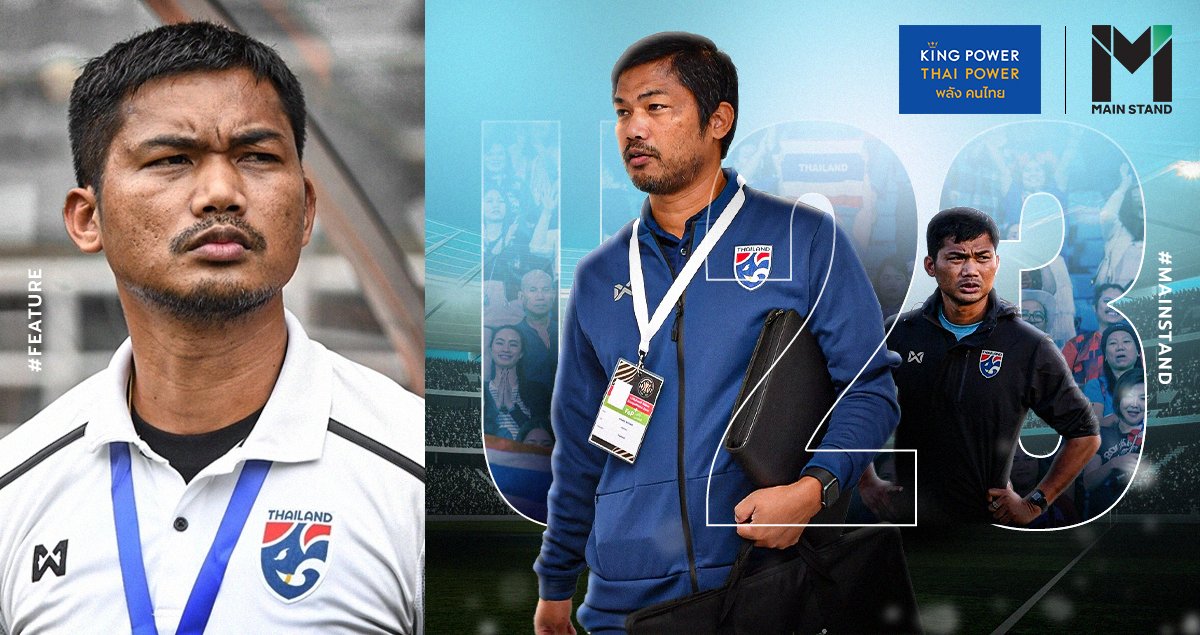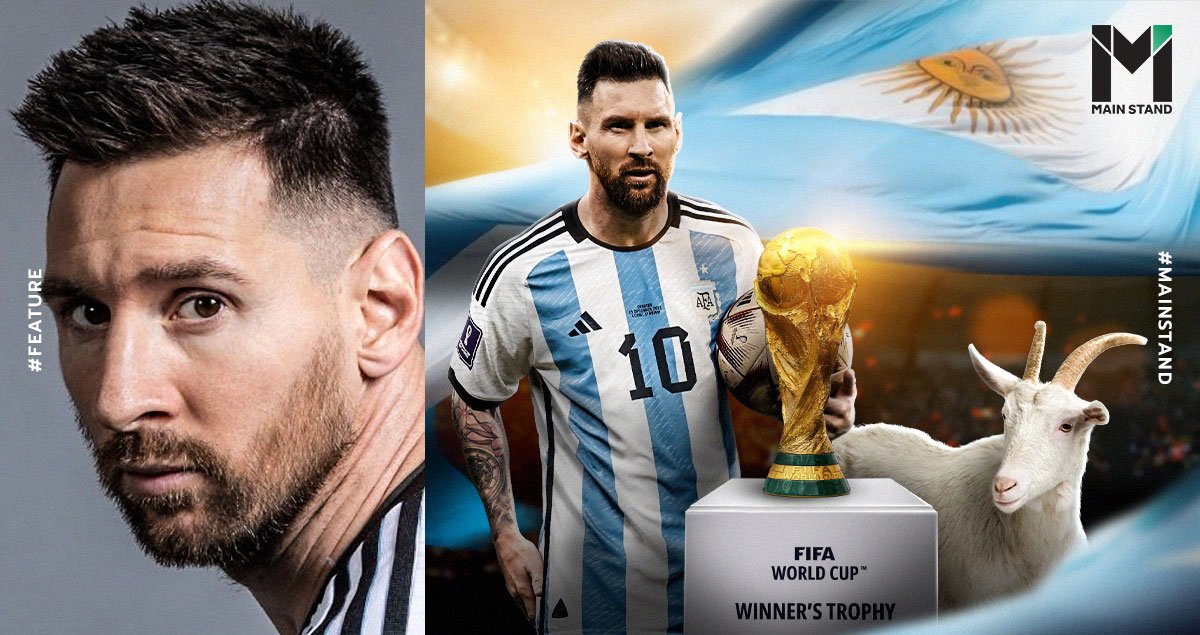
Tonight in Qatar, Lionel Messi will captain Argentina in his final World Cup match, and the script couldn’t be any greater than this.
Not only will the Argentine hero overtake German icon Lothar Matthäus for the most appearances in World Cup history, but he will also have the opportunity to create unprecedented, uncharted and untouchable history.
Although Messi already comprehensively holds the records for the most Ballon d’Ors, Golden Boots, goal contributions, man of the match awards, titles, goals in a calendar year and assists, one thing still eludes Messi in his unrivaled list of honors.
That is the World Cup title, and on Sunday night, Messi will have the opportunity to culminate one of the greatest careers sport has ever seen and polish untouchable sporting distinction
Hence here on Main Stand with writer Agastya Bajaj, we will dissect Messi’s tumultuous and magical journey with the national team.
Argentina or Spain
After Messi displayed immense potential at La Masia, Barcelona’s academy, rumors began circulating about a potential Spanish National Team call-up.
However, the Argentina Football Association acted swiftly and decided to claim the Rosario teenager first, calling up this highly touted young teenager to the national team in 2004.
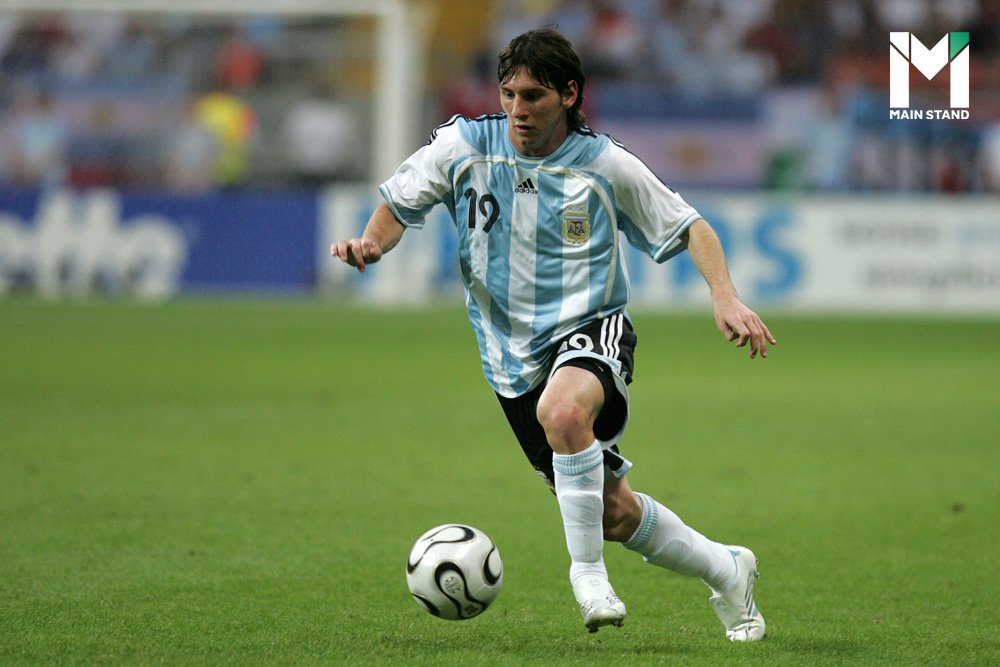
At his first World Cup in 2006, teenage Messi was subject to even more attention from the press.
With Messi beginning to make a name for himself at Barcelona, fans wanted to see this teenager play a key role in his maiden World Cup.
As such, when he was given an opportunity against Serbia and Montenegro in the group stage, Messi did not disappoint.
In an 18-minute cameo against Montenegro, Messi came off the bench to become the youngest-ever Argentinian to feature at a World Cup.
More memorably, though, Messi showcased his raw yet remarkable talent. The menacing man scored and assisted in a very lively 18-minute major tournament debut, becoming the youngest player to achieve this.
This bolstered excitement and optimism around this young boy from Rosario, with expectations skyrocketing in the absence of an Argentinian superstar since Diego Maradona’s departure.
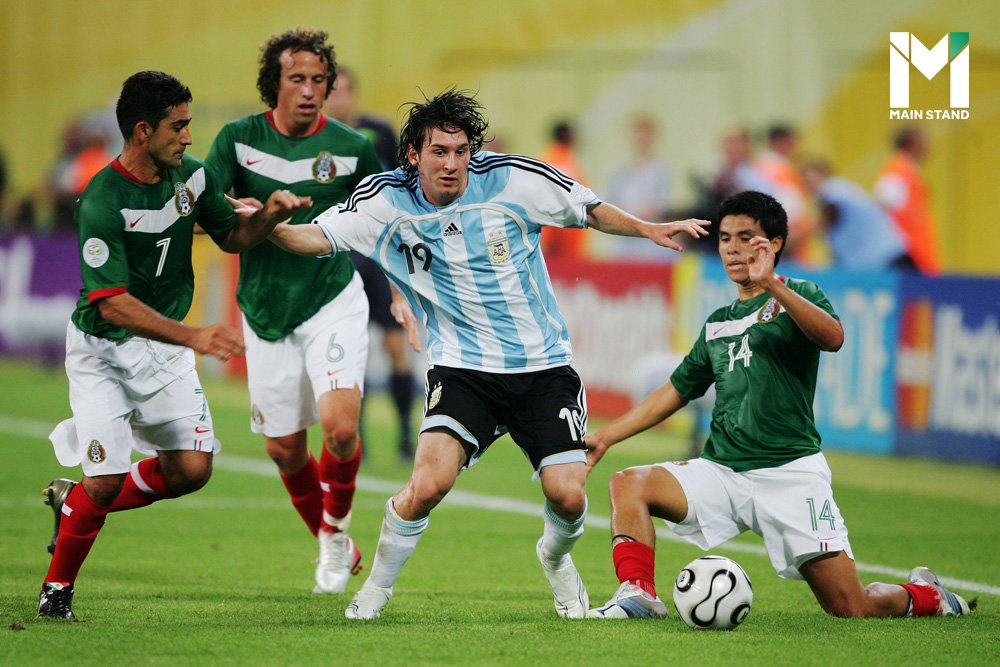
However, despite these impressive cameos, Messi was surprisingly subject to only six minutes of action in Argentina’s two knockout matches.
As a result of this controversial omission, when Germany eliminated Argentina in the quarter-finals, the major talking point back home and in the press was why Messi did not feature in this clash.
“With 25 minutes to go, Pekerman was saying the only reason Germany equalize is through the high ball,” said Gerardo Solario, one of the Argentinian coaches, explaining why manager Jose Pekerman decided to leave Messi on the bench against Germany.
This ramped immense pressure on Pekerman, who was eventually sacked due to Argentina’s underwhelming performances and not utilizing this highly regarded young talent enough.
The Catalonian
Throughout the next few years, Messi would continue to leave his mark on the sport, particularly at the club level.
The Argentine was at the forefront of football and Barcelona’s remarkable dominance between the 2006 and 2010 World Cups.
The magic man was a relentless highlight reel, regularly scoring hat tricks against top opposition such as Real Madrid, traumatizing opposition through unseen elegant dribbling, vision and passing whilst also playing a pivotal role in Barcelona’s Champions League triumph in 2009.
He was also awarded the first of his seven Ballon d’Ors in 2009. With Argentina having the best player on the planet again, this significantly increased the expectations to achieve success.
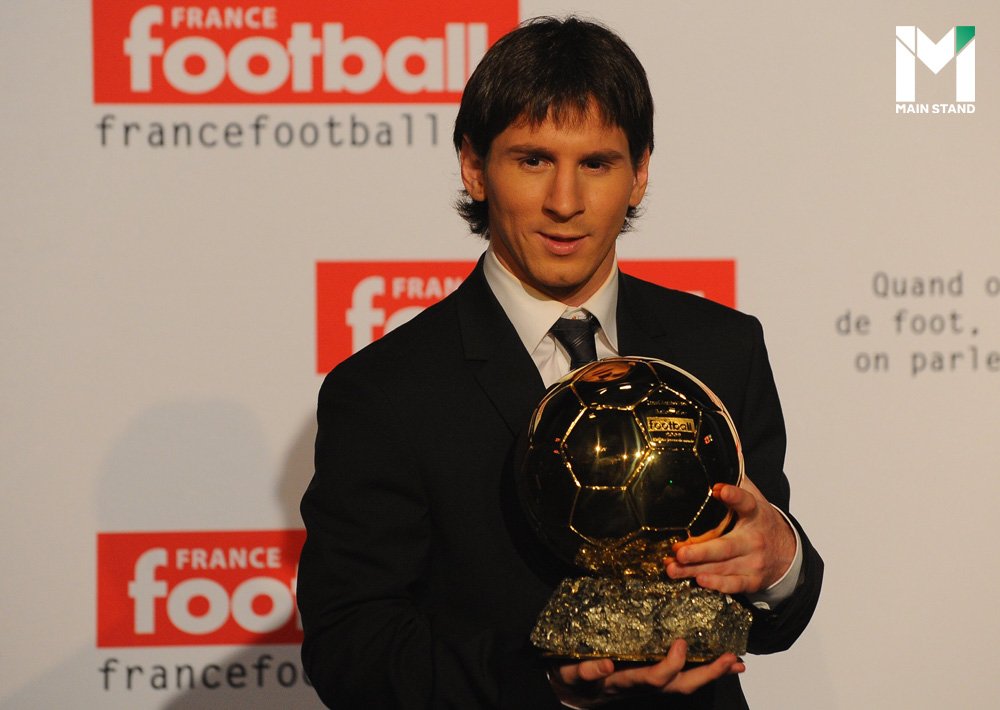
Especially under manager Diego Maradona, the expectation was that Argentina would produce a more encouraging tournament too.
“There was mutual admiration between the pair, it was as if Diego was seeing somebody who would be his successor, and Leo had done what he had done and was so admired for it,” said Maradona’s fitness coach describing their relationship.
Although Messi would guide Argentina to the Olympics in 2007, his 2010 World Cup cast a harsh shadow on his incredible start to life with the national team.
Argentina had a comfortable group stage, where Messi was a key contributor in the build-up, providing many chances for an attacking Argentinian side.
However, when Argentina met Germany in the knockouts, they comprehensively annihilated 4-0, with Leo not netting in the tournament.
Although Messi may have been 23 during this World Cup, his ability and leadership with the national team were being questioned by the Argentinian press.
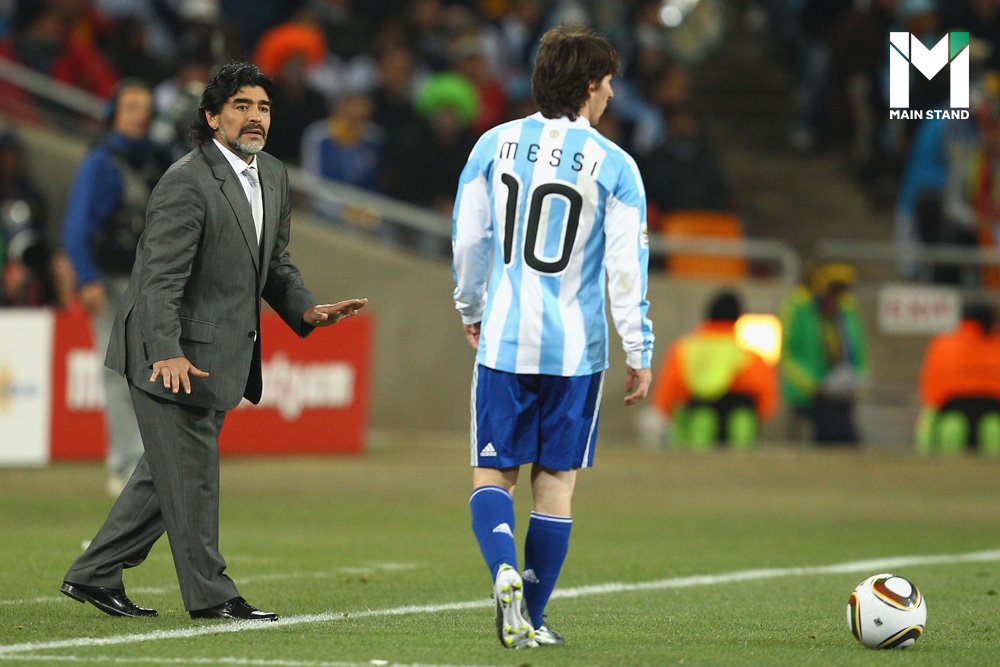
This prompted many notable Argentines to call him a Catalonian, with the performance discrepancy between club and national team underwhelming fans.
This discrepancy in performance level continued over the next few years, with Messi unanimously regarded as the best player on the planet for his majestic performances and reliability with Barcelona.
In this span, despite still being in his early to mid-20s, Messi was already breaking and holding the greatest honors in the sport. The Argentine won four consecutive Ballon d’Ors, another Champions League, many trophies and even scored a record 91 goals in a calendar year.
These performances at the club level made some hail him as the greatest player of all time, becoming the record Ballon d’Or holder at an unprecedentedly young age, with rivals such as Wayne Rooney, among many, to praise his unfathomable talent publicly.
Agony and animosity
Over the next few years, Messi would continue to produce an unseen level of performances for Barcelona, holding almost every major Barcelona statistic and cementing his ascend at the top.
On the contrary, although his performances began to increase for his country, becoming Argentina’s outright contributor and leader in the build-up to the 2014 World Cup, he was still being scrutinized.
However, at the 2014 World Cup, Messi began to emulate his regularity of club dominance at the international level.
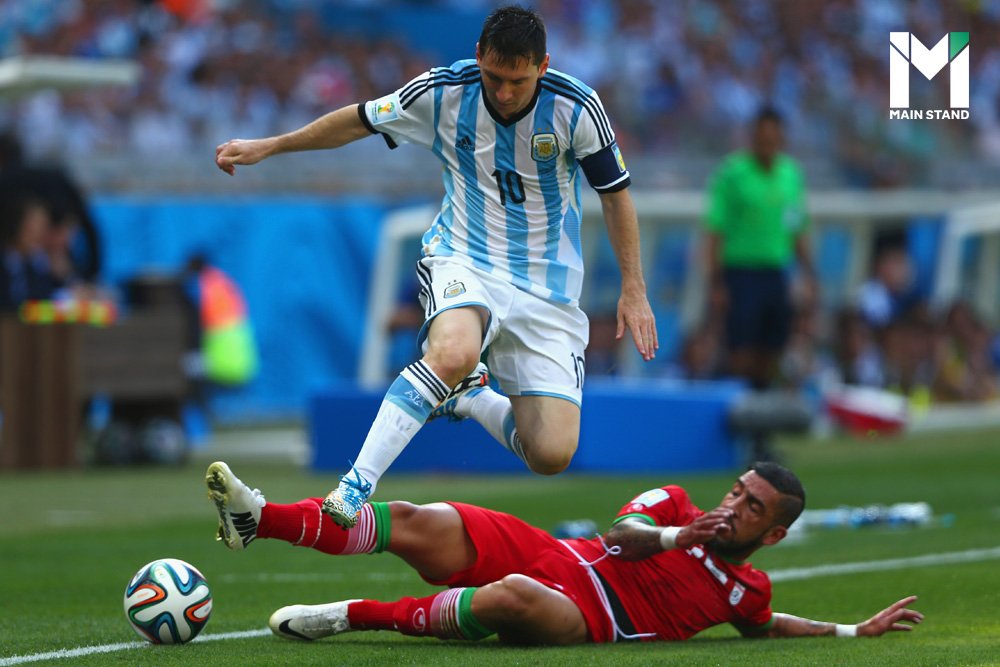
The 2014 World Cup took place in Brazil, rivals of Argentina, which would pile further pressure on the global icon.
In the group stage, Messi saved Argentina from elimination numerous times, scoring a 90th-minute winner against Iran and a remarkable late free-kick against Nigeria to win both respective games.
In the knockouts, Messi would propel Argentina to victory against Switzerland and Belgium, setting up a clash against the Netherlands in the semi-final.
“Argentina did not look convincing but the captain did,” said a newspaper outlet. “Messi was single-handedly dragging Argentina in the tournament.”
Messi scored a penalty in the semi-finals of the shootout and led his country to the World Cup final.
However, as Argentina were on the brink of producing World Cup success in 2014, with Messi nearly ridiculing all his critics, the side fell short by the slenderest of margins then, losing 1-0 to Germany in extra time though.
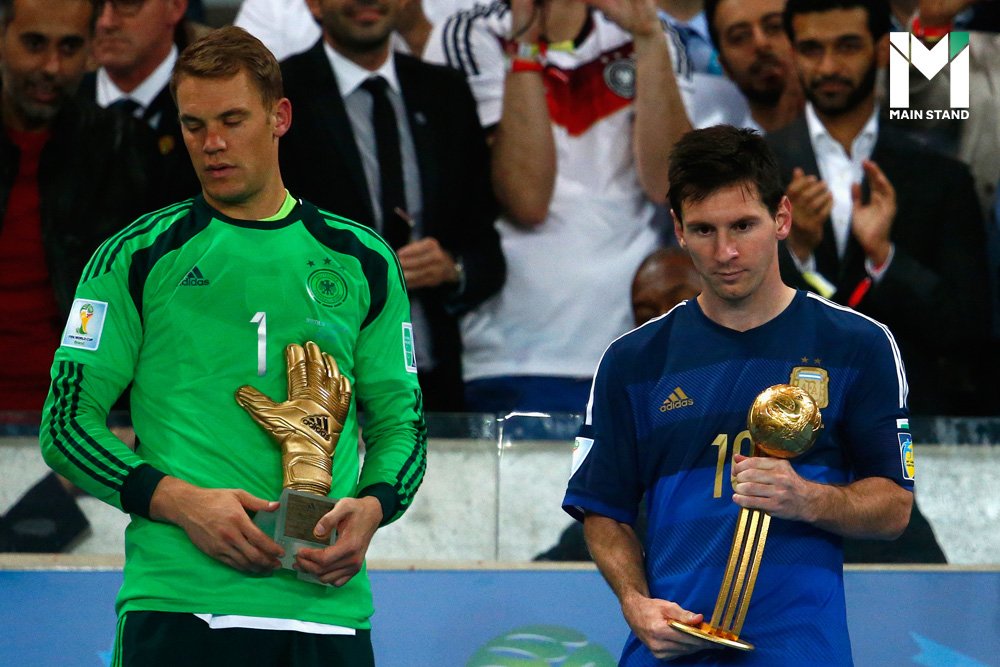
Messi was still awarded the 2014 World Cup Golden Ball, adding to his remarkable list of growing individual honors.
Despite this, Leo was still under pressure from some Argentinians, with the magic man criticized then for not being able to lead the team to glory.
Over the next few years, these criticisms would increase, with Argentinian fans frustrated at the lack of success the country has seen.
Although Messi would produce unplayable moments of magic over the next few years, netting 35 goals and assists in 24 international appearances, tensions hit a high point with the national team.
In the 2015 Copa America, Messi once again produced several magical moments to lead Argentina to the final, a second-successive final at a major tournament.
He faced Chile in the final, and the match went to penalties. Although Messi scored his penalty, once again demonstrating his reliability with the national team, other misses from teammates saw Chile win the title.
This was another agonizing campaign for Messi, leading his side to another major final but falling short by minute margins.
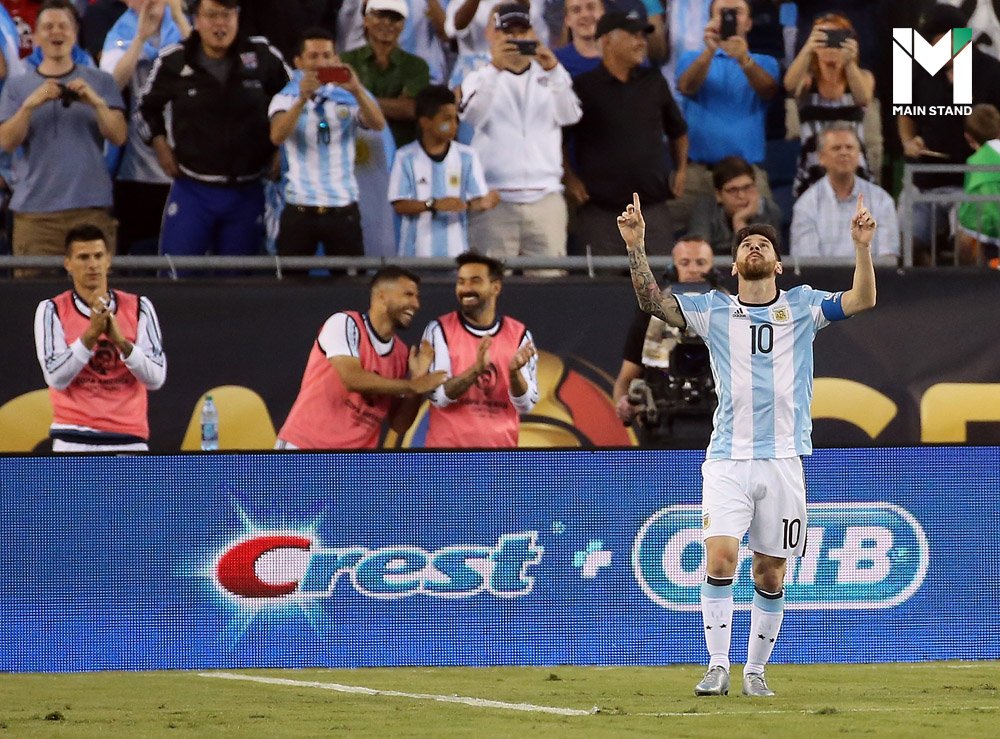
The following Copa America campaign, after another remarkable record season with the Catalonian giants in a different squad setup, Messi was even more determined to make amends for his nation’s shortcomings.
At that point, the five-time Ballon d’Or winner produced what some may have considered the best Copa America campaign in the 2016 version.
Leo again demonstrated why he was the best player at the tournament, netting five goals and four assists, including an iconic free kick against the US to lead his side back to the final against Chile.
Despite playing well, the match was taken to penalties. On this occasion, Messi missed his spot kick, with Argentina losing their third successive final with the national team.
In his press conference, Messi said, “this was too much to take,” announcing his retirement from the national team after yet another agonizing blow in that period.
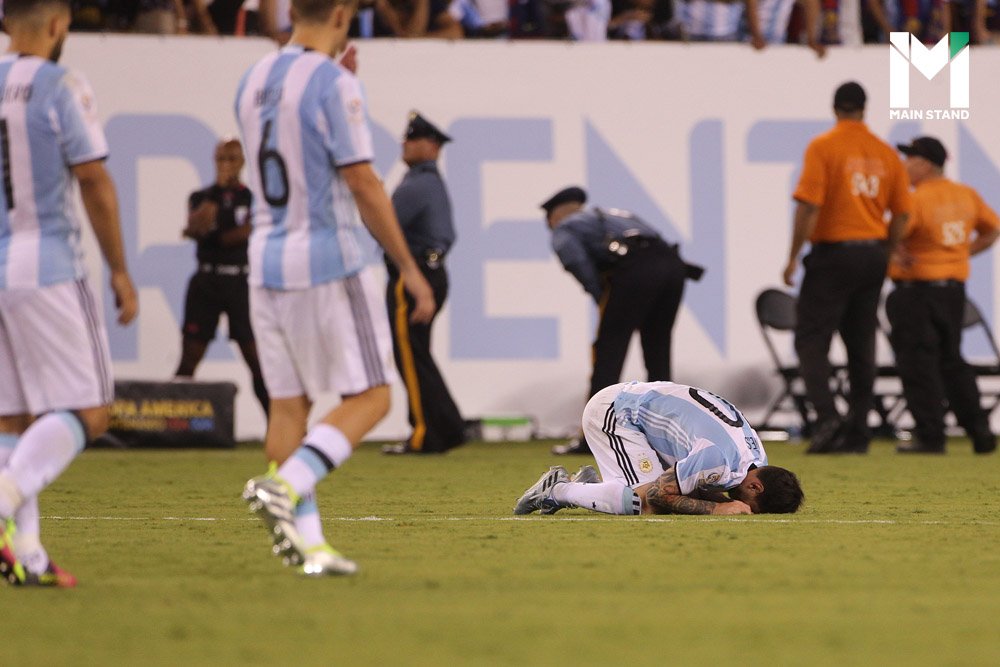
This stunned the planet, with Messi appreciated by some for his immense contributions, dragging Argentina to three finals.
However, to others, including many Argentinians, Messi's reputation was being undermined despite the individual success achieved at both club and international levels.
Several fans burnt his kits, Messi's statues were being broken and Argentinians were immensely scrutinizing Messi.
This was quite an unfathomable period, with Messi being despised by the nation he adores despite being on the brink of taking his nation to uncharted heights.
Historical comeback
However, despite all the criticism, abuse and slander, when Argentina were on the brink of missing out on qualifying for the 2018 World Cup, unprecedentedly sitting towards the bottom of South America qualifiers, Leo came out of international retirement during World Cup qualifiers to save his country.
When Messi returned, his presence was beginning to be appreciated and a bond between him and some angry Argentine fans was growing too.
Argentina won almost all of their qualifying games with their captain back in the side.
In a do-or-die final qualification match against Ecuador, this was when Messi elevated and produced another pivotal moment of magic.
After going 1-0 down to Ecuador, it seemed like Argentina would miss out on the World Cup.
However, Messi produced another masterpiece, scoring a hattrick and sending Argentina to the World Cup, with the nation elated again.
At the 2018 World Cup, Argentina could have had a better campaign though.
In the group stage, Argentina suffered a shock 3-0 defeat to Croatia and needed to beat Nigeria to advance to the knockouts.
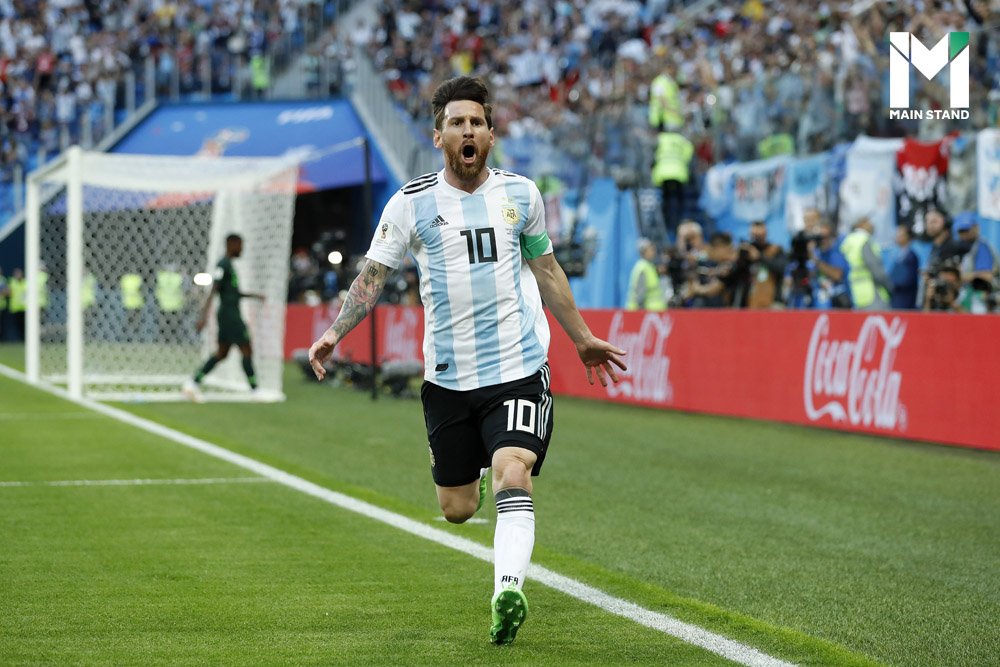
Once again, Messi scored one of the most technically sophisticated goals, an exquisite touch and volley to give Argentina the lead in that clash. The side went on to prevail in that encounter, booking their place in the knockouts spurred on by another moment of Messi magic.
However, they lost in the 2018 knockouts to the eventual champions France, with Messi still producing two assists.
With Argentina looking quite bereft of quality without the magic man, even with him, the press found it infeasible to witness Messi winning a title with the national team.
In the following Copa America in 2019, Argentina lost in the semi-finals against Brazil. After the defeat, these questions on whether Messi could win a title with the national team were further enhanced, with the magic man in his 30s and seemingly in the twilight of his career.
Uncharted dominion
Following the World Cup campaign, Messi produced one of his best seasons at the club level. The side nearly won all possible trophies, agonizingly losing out to Liverpool in the semi-finals of the Champions League.
However, Messi garnered a lot of plaudits from the press, comprehensively winning the La Liga title with an average Barcelona side and nearly winning the Champions League title.
With Messi’s remarkable form with club and country, taking teams with no right to challenge for major titles, belief was still engraved in the magic man.
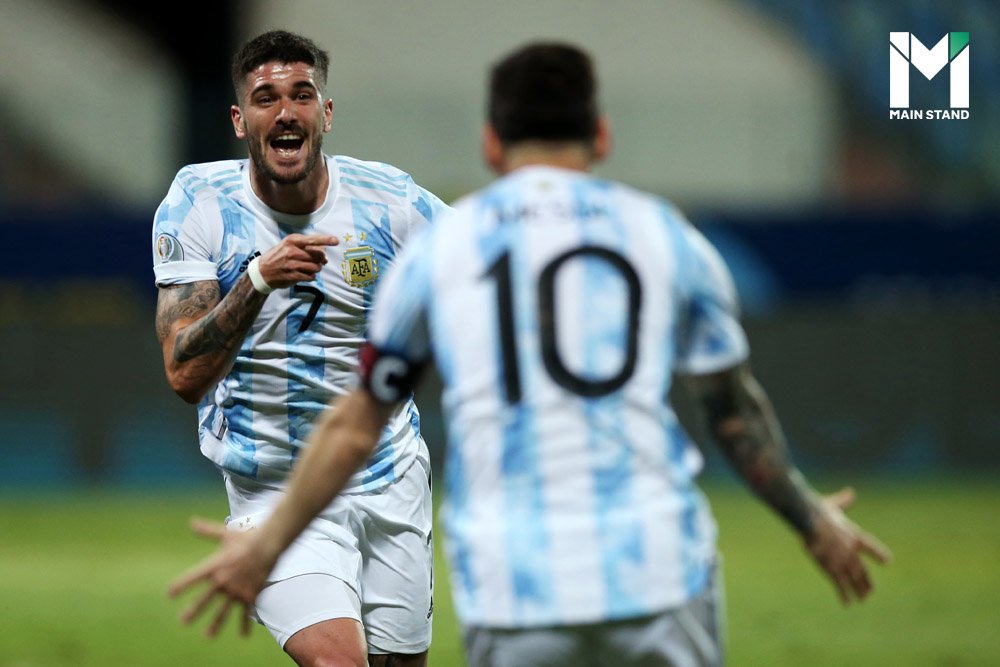
Following the 2019 Copa America, with the Argentinian FA struggling financially, they appointed former Argentinian international Lionel Scaloni.
The appointment of someone who hadn’t previously occupied a managerial role was interesting, but it paid off unprecedentedly well.
Throughout the latter portions of 2019, Argentina embarked upon a run of dominance. The side went 36 games unbeaten, not losing a match in almost three years too.
Scaloni’s whole system revolved around Messi, ensuring the players around him demonstrate their full commitment to Messi and to win for him.
In the Copa America last year, Messi produced another magical tournament. Once again, en route to the final, Messi produced moments of magic, regularly scoring free kicks and his unrivaled playmaking was on display.
In the final, the side were matched up against arch-rivals Brazil, the reigning Copa America champions, in Brazil, a place Argentina haven’t won against Brazil in a lengthy duration.
After comprehensively beating virtually every other South American nation, the relatively young players around him demonstrating that missing commitment for their captain and Leo becoming very vocal and passionate, Argentina came into this final in exquisite condition.
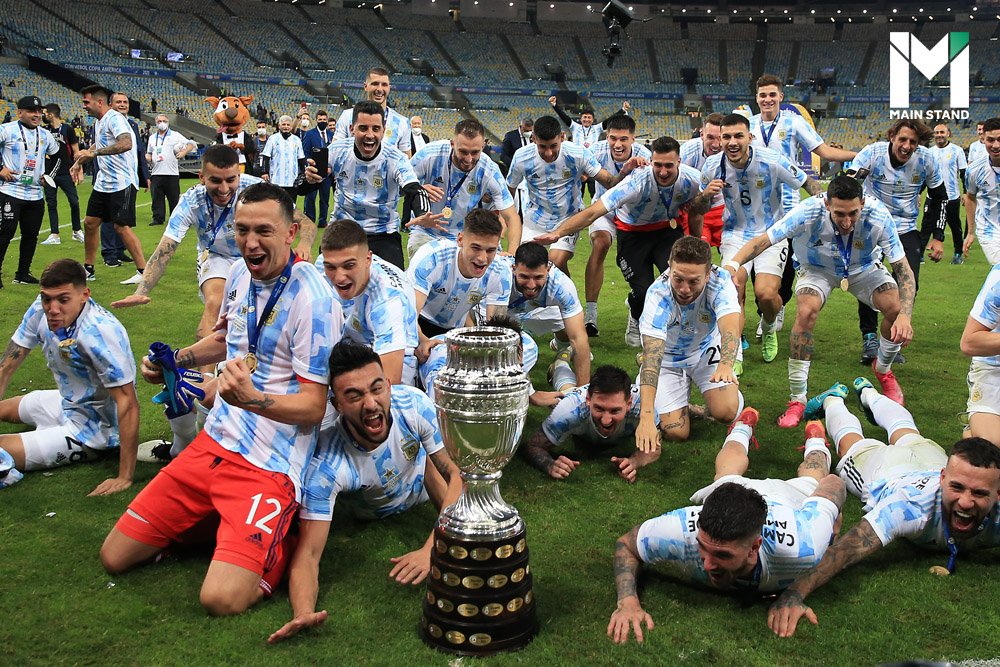
In the final, Argentina beat Brazil 1-0, courtesy of a Di Maria winner, with Messi finally clinching a trophy with his country.
Messi was awarded player of the tournament once again, having the most man of the match awards, goals, assists, chances created and key passes.
Scaloni also received plaudits for making Argentina’s backline quite impenetrable, with Aston Villa’s Emi Martinez and center halves Lisandro Martinez, Nicolas Otamendi and Cristian Romero producing reliable performances for the nation.
Heading into this World Cup, the side continued their dominion. Messi secured his second trophy with the national team earlier this year, producing a 10/10 display at Wembley against Italy in a 3-0 Argentina victory to win the Finalissma too.
This enhanced Argentina’s prospects of winning the World Cup, with the side around Messi looking in better condition under Scaloni, while Messi is in the richest vein of form for the national team.
The most revered and romantic ending
As such, heading into this World Cup Argentina were poised for success.
After a shock defeat to Saudi Arabia in the opening match, pressure piled on the side. Messi himself described each following match as a “knockout match”, with Argentina needing to win to advance to the next round.
Argentina beat Mexico and Poland in their next two group matches, with Messi opening the scoring against Mexico to inspire and lift his nation.
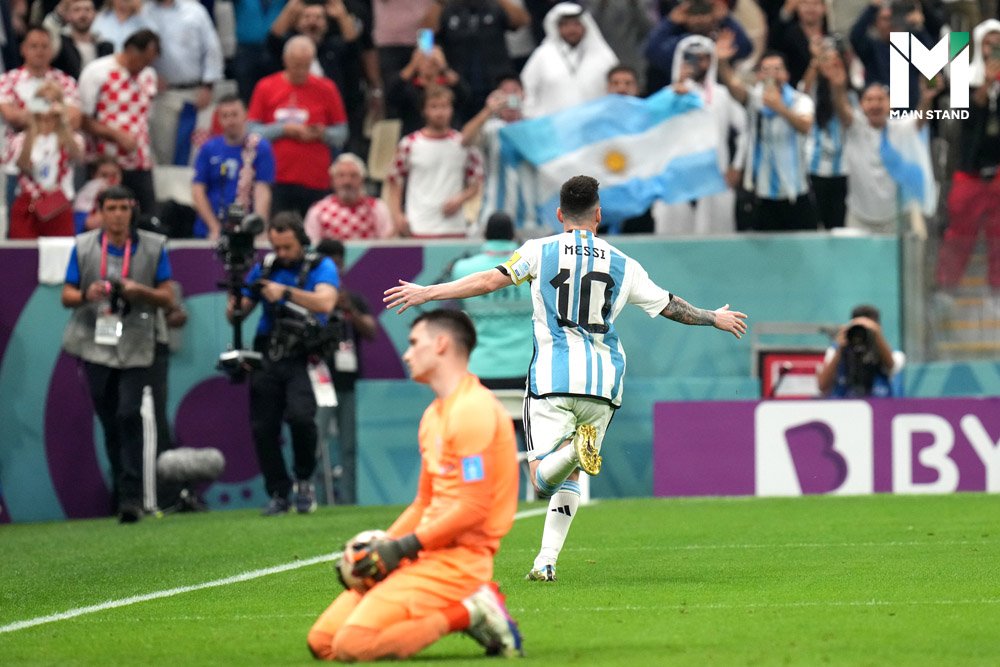
In the following round against Australia, Messi continued his rich vein of form, opening the scoring, producing another vintage display in a 2-1 victory.
In the quarter-finals against the Netherlands, after Messi was slandered by the Dutch before the match, he produced another clinic.
Messi scored and provided one of the greatest assists in World Cup history in the encounter. He also converted his penalty in the shootout, leading Argentina to another momentous victory again.
In the semi-finals, Messi’s side beat previous finalists Croatia 3-0, with Messi again producing another majestic performance, scoring and assisting to lead his country to another World Cup final.
In the 2022 World Cup, Messi has the most man of the match awards, goals, assists, duels, chances and key passes.
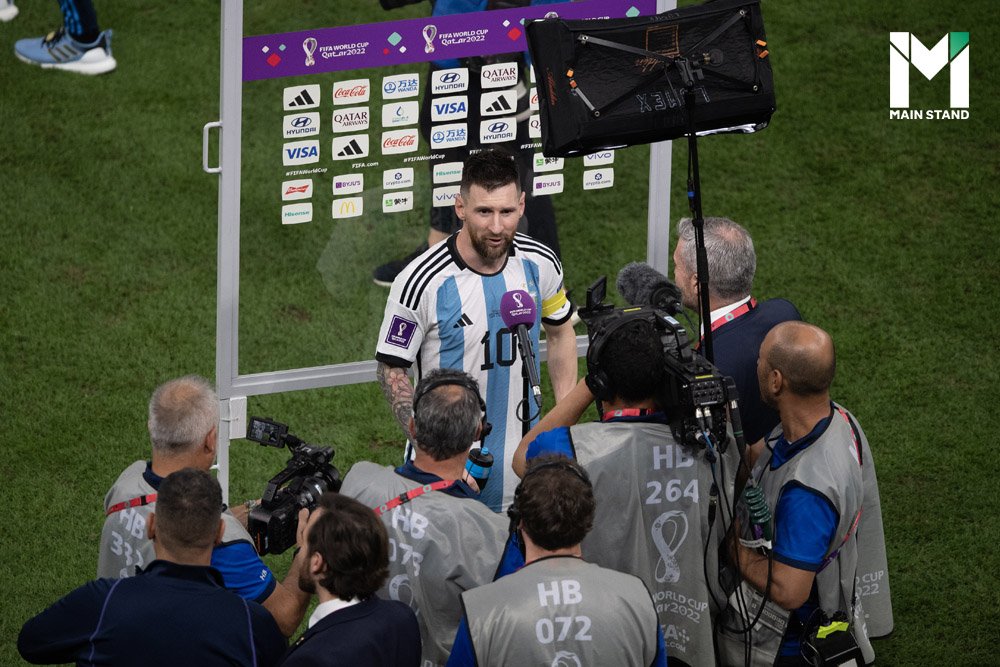
He also became the only player to win the man of the match award at every stage of the competition, with Messi producing another historical campaign.
Talking to the journalists after Argentina’s comprehensive 3-0 victory, Messi said “It's my last World Cup. It's impressive to end up playing the final. There’s a long way to go for the next one, there are many years and surely because of age I will not reach it. I’m going to play my second World Cup final. Hope this time it ends in another way.”
“I just want to tell you that no matter the results, there's something that no one can take from you, and it's the fact that you resonated with Argentinians, every single one,” an Argentinian reporter told Messi after the semi-final victory.
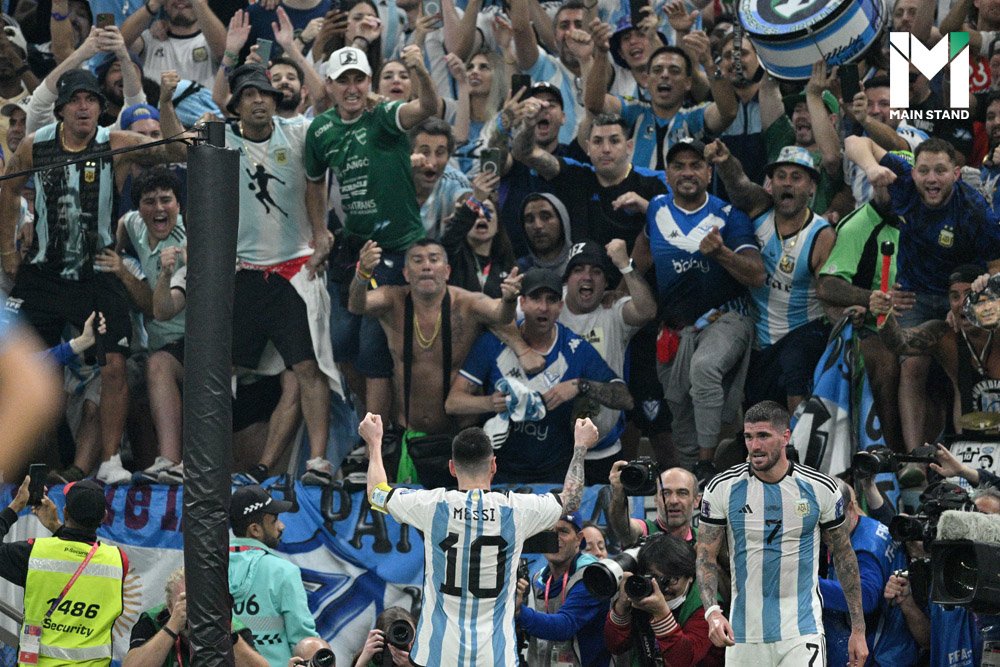
“There's no kid who doesn't have your team shirt, no matter if it's fake, real or a made up one. Truly you made your mark in everyone’s life. And that to me, is beyond winning any tournament. No one can take that from you, and this is my gratitude. For such amount of happiness you bring to a lot of people,” with the reporter evoking how Messi is not only a global icon, but adored and perceived as a god by the Argentinian faithful.
With Messi featuring in another final on Sunday, the stage is set for another remarkable moment of magic.
Messi would complete football with a victory, winning every competition he has competed in. It would also polish arguably the greatest story in sports history, with Messi transforming the agony and hatred into admiration, elation and dominion.
On Sunday, Messi gets the opportunity to complete football through another magical victory.
Sources
https://www.sportingnews.com/uk/world-cup/news/lionel-messi-2022-world-cup-stats-history-goals-assists-argentina/kwsrqeutf5lytnczdpf0qgy
https://www.foxsports.com/stories/soccer/lionel-messis-world-cup-resume-stands-apart-as-he-reaches-second-final




